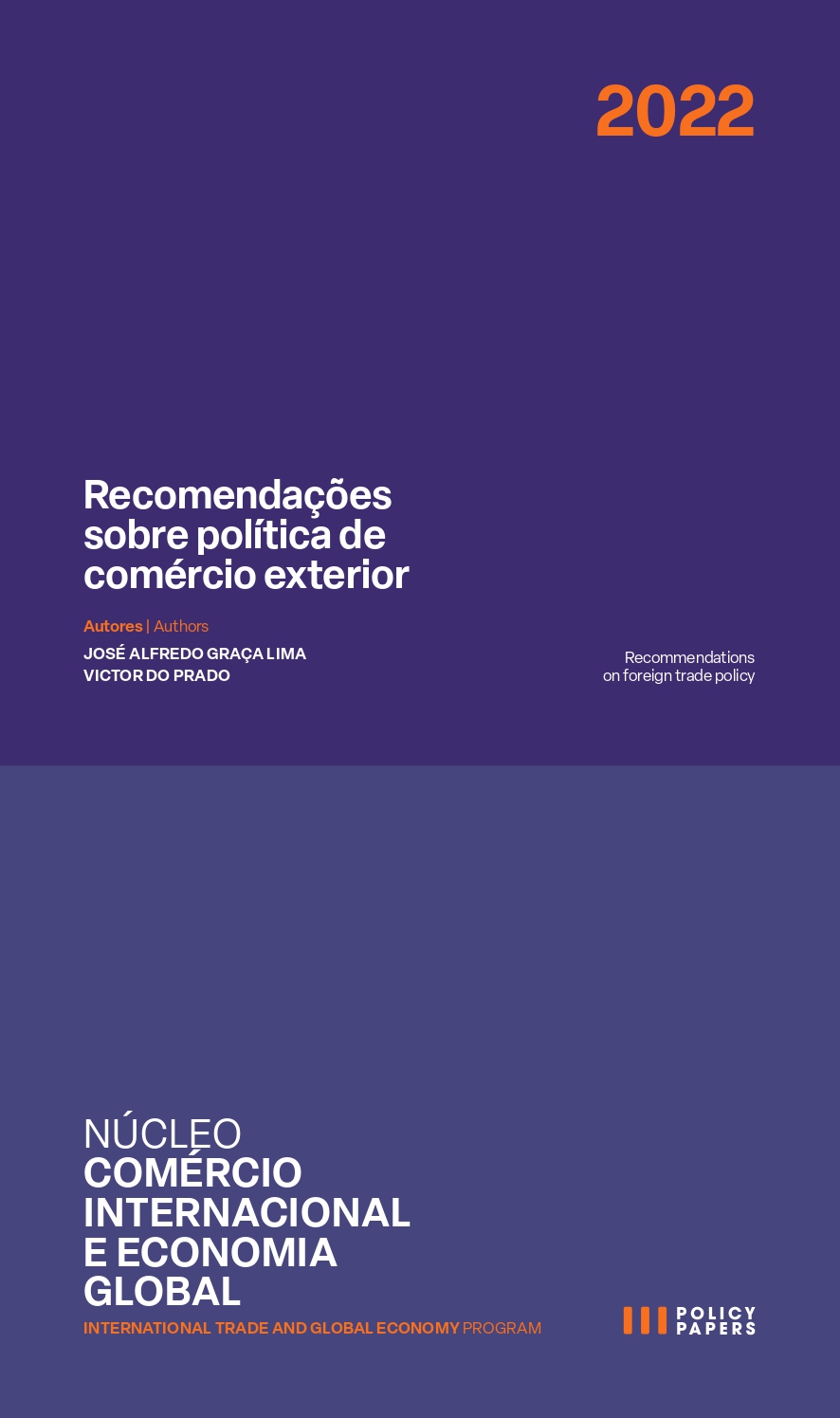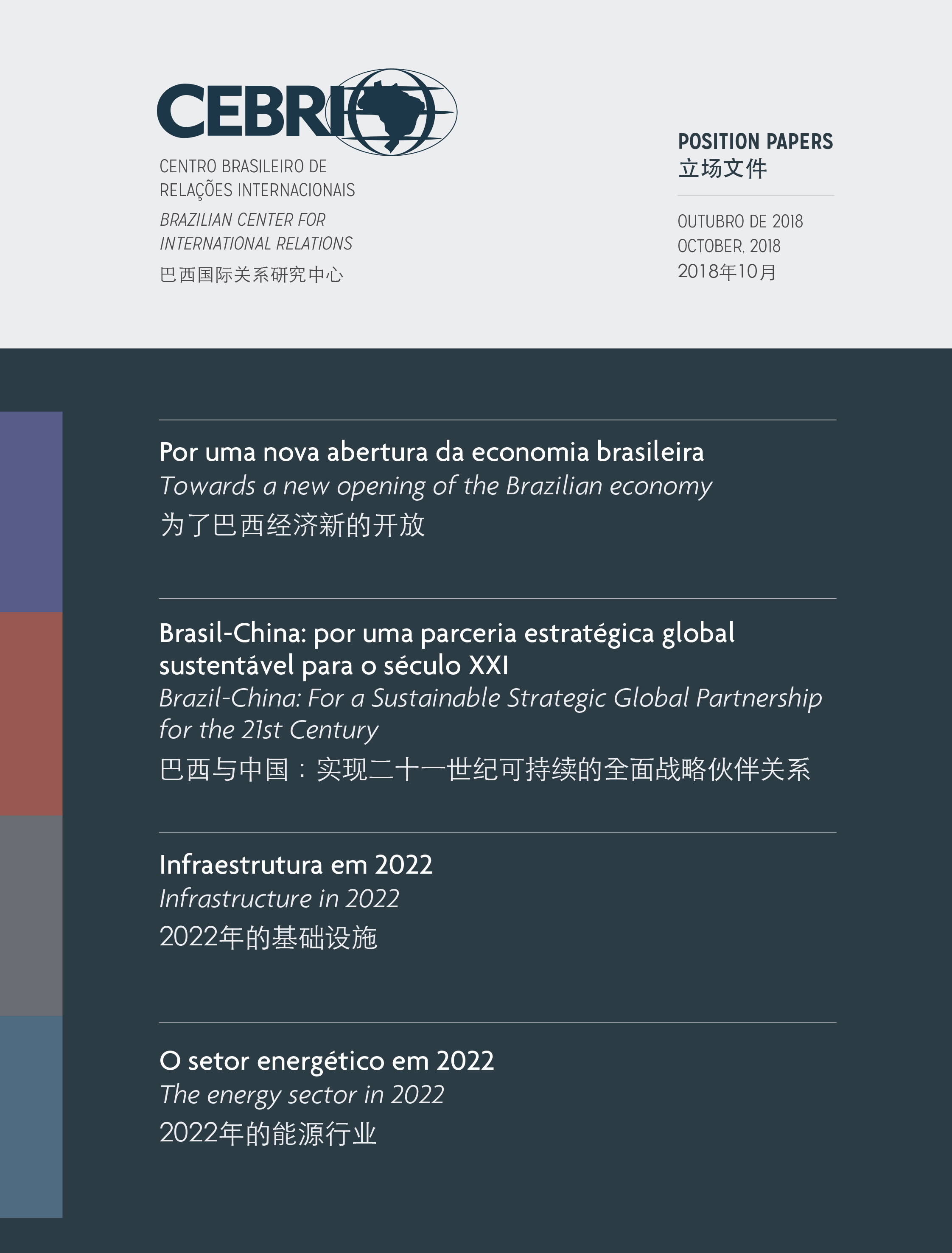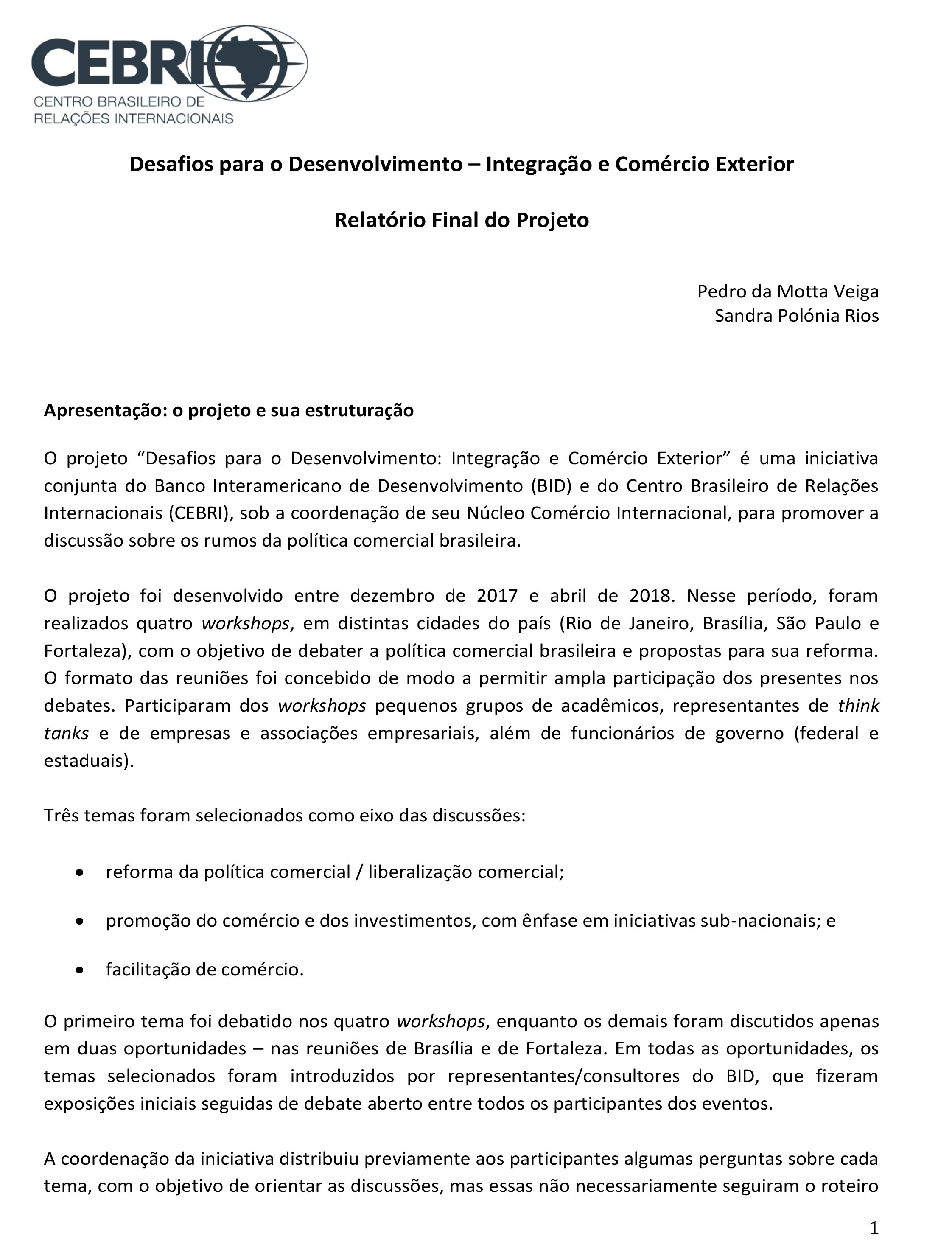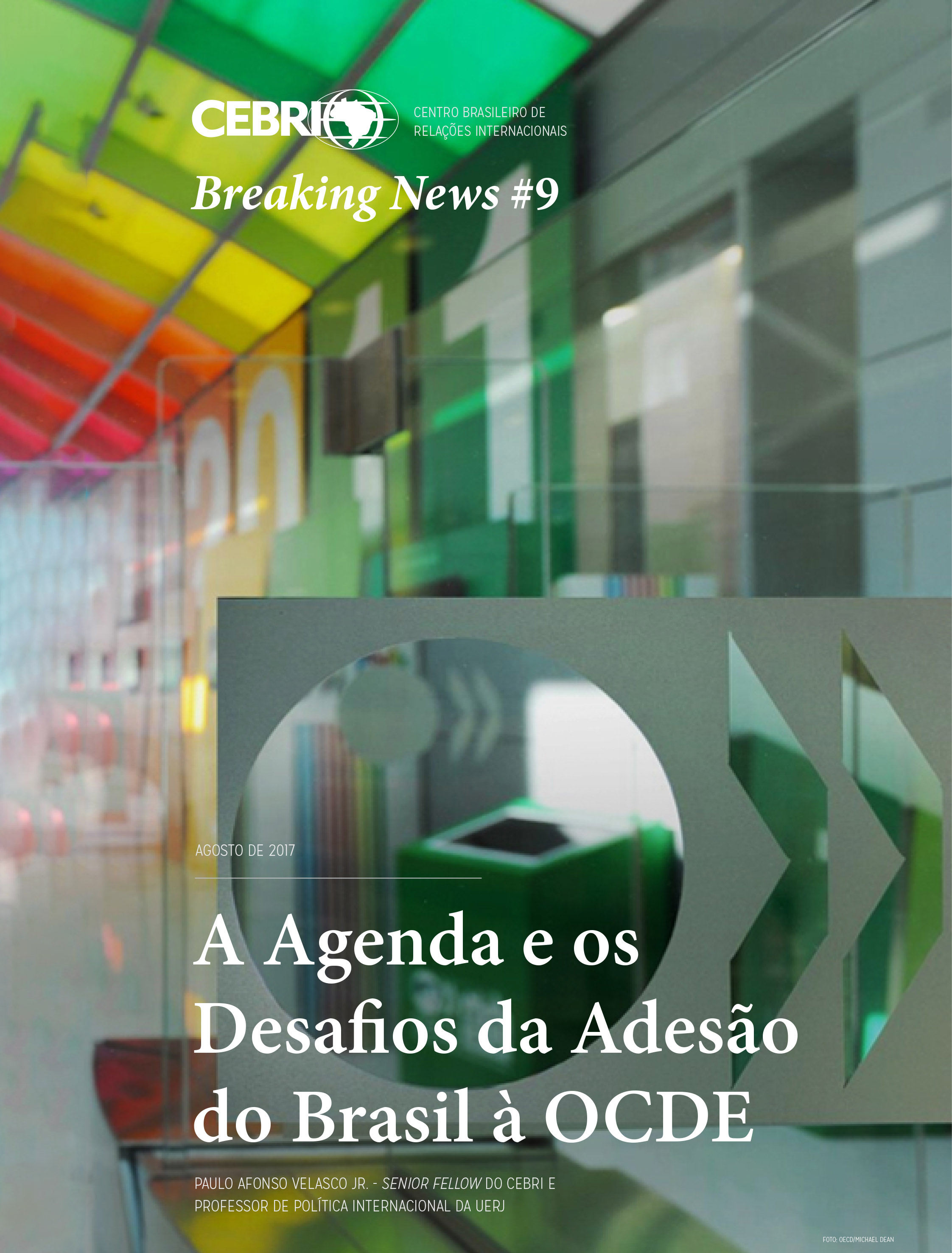This document summarizes our recommendations for Brazil’s foreign trade policy based on the debates organized and on the papers published by the CEBRI International Trade and Global Economy Program and on the critical mass accumulated in the course of several months.
The proposals are based on the principle Brazil should strengthen its relations with its major trade partners (US, China, European Union and Mercosur) and its role in economic governance entities (WTO, OECD and G20). The recommendations herein seek to contribute to the debate regarding Brazil’s foreign trade policy and to help Brazilian society and Government make wise choices in the coming years.
Institutional Partnerships:
Konrad Adenauer Stiftung
This document summarizes our recommendations for Brazil’s foreign trade policy based on the debates organized and on the papers published by the CEBRI International Trade and Global Economy Program and on the critical mass accumulated in the course of several months.
The proposals are based on the principle Brazil should strengthen its relations with its major trade partners (US, China, European Union and Mercosur) and its role in economic governance entities (WTO, OECD and G20). The recommendations herein seek to contribute to the debate regarding Brazil’s foreign trade policy and to help Brazilian society and Government make wise choices in the coming years.
Institutional Partnerships:
Konrad Adenauer Stiftung







